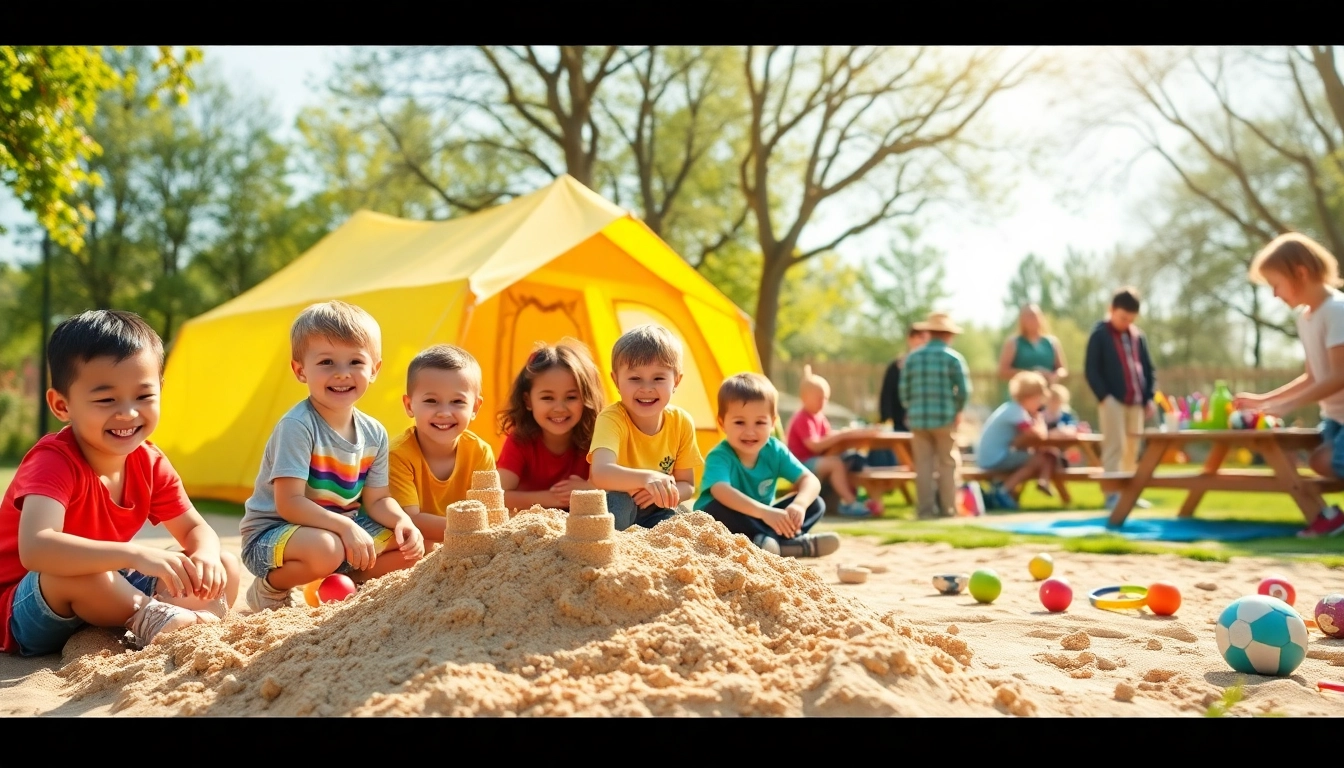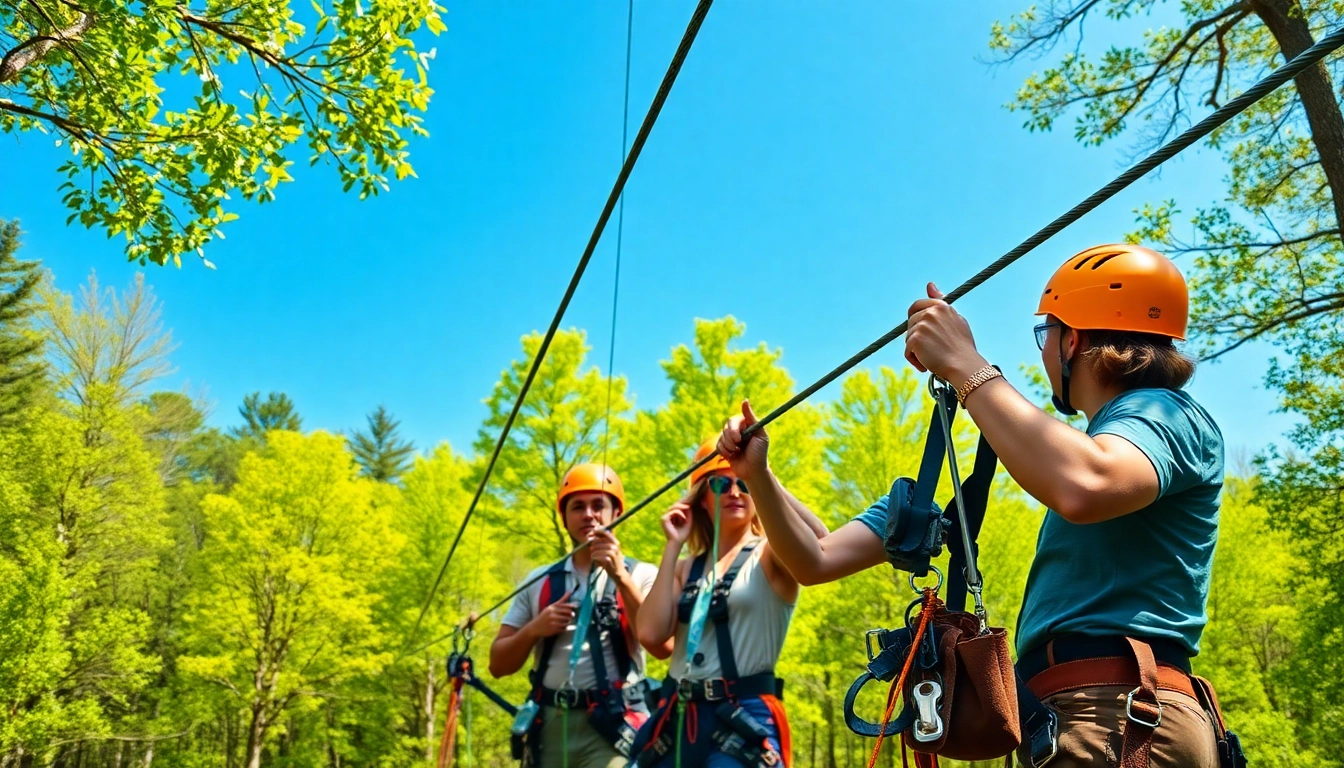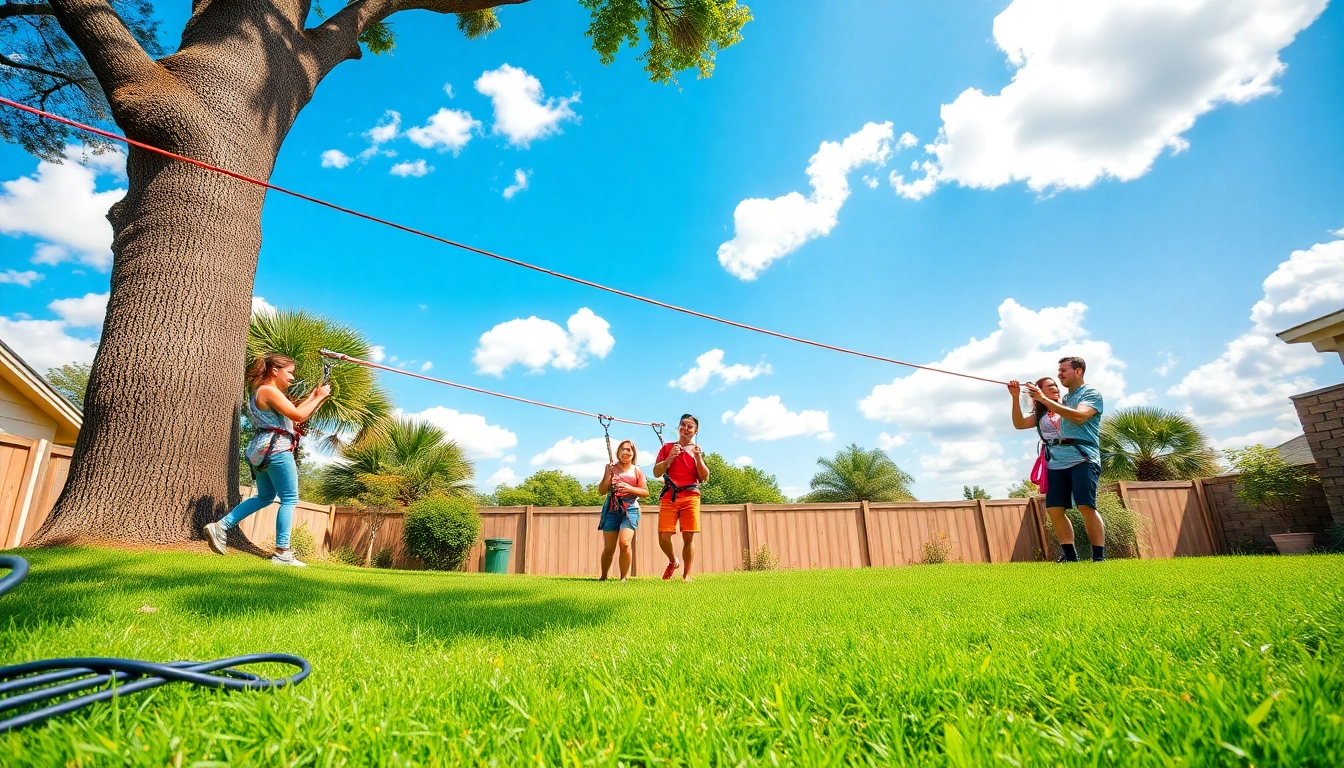Understanding Holiday Camps: What They Are and Their Benefits
Definition of Holiday Camps
Holiday camps are special types of accommodations designed primarily for families and children. They typically provide an all-inclusive experience, where guests can engage in various entertainment and recreational activities without leaving the site. Mostly popular in destinations like the United Kingdom, these camps create a unique blend of leisure and community, allowing families to enjoy a vacation that fosters social interactions and personal growth.
Benefits of Attending Holiday Camps
Choosing to enroll your child in a holiday camp comes with a myriad of benefits, ranging from enhanced social skills to instilling independence.
- Social Development: Holiday camps provide an environment where children can make new friends, develop teamwork skills, and learn how to interact with peers in a structured setting.
- Skill Enhancement: Many camps offer programs designed to teach new skills, such as sports, arts and crafts, and outdoor survival, allowing kids to discover their passions and talents.
- Physical Activity: With numerous outdoor adventures and sports, camps promote an active lifestyle, helping children to stay fit and healthy.
- Independence and Confidence: Being away from home in a camp environment encourages children to be more self-reliant, boosting their confidence in handling responsibilities.
- Structured Environment: Camps operate within a well-defined schedule, providing a balanced mix of educational and recreational activities that promote discipline and time management.
Types of Holiday Camps Available
Holiday camps come in various forms, catering to different interests and age groups. Here are some popular types:
- Traditional Camps: These camps focus on outdoor activities such as hiking, swimming, and games like capture the flag. They aim to immerse children in nature while engaging them in physical activities.
- Sports Camps: For the athletic kids, sports camps focus on specific sports like soccer, basketball, or swimming, providing specialized training and competitive play.
- Arts and Crafts Camps: These camps emphasize creativity, offering programs in painting, pottery, music, and drama, giving children a chance to express themselves artistically.
- Academic Camps: Perfect for kids seeking to enhance their knowledge or skills, academic camps focus on subjects like coding, science, or language arts while making learning fun.
- Adventure Camps: For thrill-seekers, adventure camps often include activities like rock climbing, zip-lining, and wilderness survival, encouraging children to step out of their comfort zones.
Choosing the Right Holiday Camp for Your Child
Factors to Consider When Selecting a Camp
When scouting for the ideal holiday camp, it’s essential to consider several factors to ensure it meets your child’s needs:
- Location: The camp’s proximity can impact convenience and access for both transportation and emergencies.
- Camp Duration: Camps can vary in length; some run for a week, while others might last for the entire holiday. Determine what’s suitable for your family’s schedule.
- Cost: Camp fees can range significantly; it’s vital to establish a budget and weigh the value against the offered experiences.
- Staff Qualifications: Research the camp leaders’ backgrounds to ensure they are trained in childcare and safety protocols.
- Program Variety: Make sure the camp offers a diverse range of activities that align with your child’s interests.
Age-Appropriate Camps and Programs
Finding a camp that aligns with your child’s age and developmental stage is paramount. Younger children may benefit more from camps that focus on play and social skills, while older kids might seek camps that offer leadership opportunities and specialized training in areas of interest.
For instance, many camps cater specifically to age groups, such as:
- Preschool Camps: Geared towards younger children, focusing on social interaction and basic skills through play.
- Elementary Camps: Designed to engage children aged 6-12, with varied programs ranging from sports to arts.
- Teen Camps: Tailored for older adolescents, these camps often incorporate leadership training and more challenging physical activities.
How to Evaluate Camp Quality and Safety
Ensuring that a camp is both high-quality and safe is a top priority for parents. Here are some steps to assess these criteria:
- Visit the Camp: If possible, attend an open day or schedule a tour. This allows you to see the facilities, meet the staff, and gauge the environment your child will be in.
- Check Certifications: Look for camps that are accredited by reputable organizations, indicating they meet specific safety and quality standards.
- Online Reviews: Read testimonials from other parents and former campers. Online reviews can give insight into the camp’s reputation.
- Emergency Procedures: Inquire about the camp’s emergency and health policies to understand how they handle unexpected situations.
Popular Activities in Holiday Camps
Outdoor Adventures and Sports
Outdoor activities are a staple in holiday camps, providing children with experiences that strengthen their physical health and teamwork skills. Some common outdoor activities include:
- Sports Competitions: Events like soccer tournaments, swimming races, and relay runs that promote friendly competition.
- Nature Trails: Hiking and exploring local ecosystems fosters a love for nature and an understanding of environmental conservation.
- Campsite Games: Team sports and group games such as capture the flag or dodgeball encourage camaraderie and teamwork.
Arts, Crafts, and Educational Programs
Camps often provide arts and crafts sessions that allow children to express their creativity. Some activities may include:
- Painting and Drawing: Sessions where children can explore different mediums and styles with guidance from experienced instructors.
- Craft Projects: Creating items from natural and recycled materials, fostering creativity and environmental appreciation.
- Literacy Programs: Reading hour and storytelling sessions that enhance comprehension and foster a love for reading.
Team-building Exercises and Games
Building team spirit and leadership skills is crucial in developing social competencies in children. Camps often employ various team-building activities such as:
- Obstacle Courses: These physical challenges promote collaboration as children must strategize together to complete tasks.
- Trust Exercises: Activities like trust falls and group challenges to foster trust and collaboration.
- Scavenger Hunts: These fun adventures encourage teamwork and critical thinking as groups work together to complete challenges.
Tips for Parents: Preparing Your Child for Holiday Camps
How to Discuss Camp Expectations with Your Child
Effective communication is vital in preparing your child for a holiday camp. Here’s how to discuss expectations:
- Open Dialogue: Ask your child about their feelings, concerns, and what they are excited about concerning camp.
- Share Your Experience: Relate your own camp stories if applicable. Sharing positive experiences can create excitement and allay fears.
- Set Realistic Expectations: Discuss what they can expect regarding activities, interactions, and daily schedules.
What to Pack for a Holiday Camp Experience
Proper preparation includes packing essential items to ensure your child has a comfortable and enjoyable camp experience. Some important items to include are:
- Clothing: Weather-appropriate clothing, swimwear, and comfortable shoes for physical activities.
- Personal Items: Toiletries, bug spray, sunblock, and other personal care items.
- Sufficient Snacks: Non-perishable snacks for energy boosts between activities.
Establishing a Positive Mindset for Camp
Creating a positive approach to camp experience is vital. Here are some strategies for instilling a positive mindset:
- Encouragement: Instill confidence in your child, emphasizing that they are going to have a lot of fun and learn new skills.
- Teach Resilience: Discuss how to cope with challenges or fears that might arise during their camp experience.
- Involve Them in the Preparation: Allow your child to help in packing and selecting activities they are interested in, promoting ownership and excitement.
Finding Holiday Camps Near You
Resources for Locating Camps and Programs
Finding the right holiday camp involves utilizing various resources. Check local community centers, schools, and online directories. Websites like holiday camps provide listings and resources for families to find suitable options.
Comparing Camp Options in Your Area
When comparing camps, consider visiting multiple locations and comparing their programs, costs, and facilities. This assessment can help narrow down options to find the best fit for your child.
Testimonials and Reviews from Other Parents
Seek out feedback from other parents whose children have previously attended the camps you’re considering. Online forums, social media groups, and review platforms can provide invaluable insights into the camp’s reputation and overall quality.



